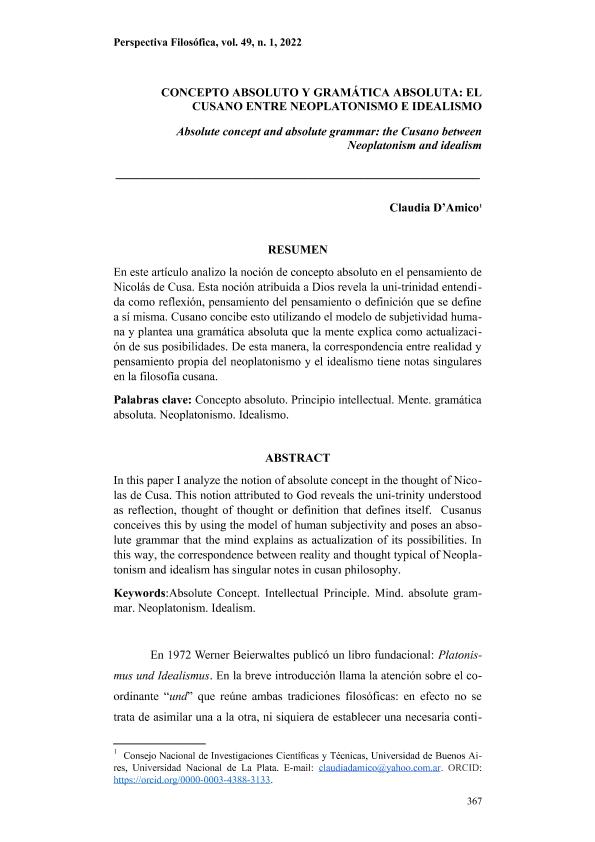Artículo
En este artículo analizo la noción de concepto absoluto en el pensamiento de Nicolás de Cusa. Esta noción atribuida a Dios revela la uni-trinidad entendida como reflexión, pensamiento del pensamiento o definición que se define a sí misma. Cusano concibe esto utilizando el modelo de subjetividad humana y plantea una gramática absoluta que la mente explica como actualización de sus posibilidades. De esta manera, la correspondencia entre realidad y pensamiento propia del neoplatonismo y el idealismo tiene notas singulares en la filosofía cusana. In this paper I analyze the notion of absolute concept in the thought of Nicolas de Cusa. This notion attributed to God reveals the uni-trinity understood as reflection, thought of thought or definition that defines itself. Cusanus conceives this by using the model of human subjectivity and poses an absolute grammar that the mind explains as actualization of its possibilities. In this way, the correspondence between reality and thought typical of Neoplatonism and idealism has singular notes in cusan philosophy.
Concepto absoluto y gramática absoluta: el Cusano entre neoplatonismo e idealismo
Título:
Absolute concept and absolute grammar: the Cusano between Neoplatonism and idealism
Fecha de publicación:
02/2022
Editorial:
Universidade Federal de Pernambuco
Revista:
Perspectiva Filosofica
ISSN:
0104-6454
Idioma:
Español
Tipo de recurso:
Artículo publicado
Clasificación temática:
Resumen
Palabras clave:
NICOLÁS DE COSA
,
NEOPLATONISMO
,
IDEALISMO
,
CONCEPTO ABSOLUTO
Archivos asociados
Licencia
Identificadores
Colecciones
Articulos(SEDE CENTRAL)
Articulos de SEDE CENTRAL
Articulos de SEDE CENTRAL
Citación
D'amico, Claudia; Concepto absoluto y gramática absoluta: el Cusano entre neoplatonismo e idealismo; Universidade Federal de Pernambuco; Perspectiva Filosofica; 49; 1; 2-2022; 367-380
Compartir
Altmétricas




